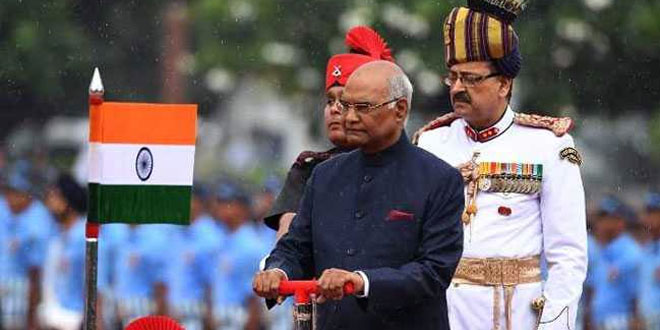New Delhi: The Raj Bhavans, or the official accommodations of the state Governors, may be developed as the ideal premises for environment conservation and as model green buildings, President Ram Nath Kovind said.
“Even the Directive Principles of State Policy of our Constitution speak of environment conservation and protecting wildlife. In this context, all the Raj Bhavans can be developed as premises which are role model for environment conservation,” President Kovind said while addressing the concluding session of the 49th Conference of Governors held at Rashtrapati Bhavan.
“There is a need to work efficiently towards water and power conservation, use of clean energy and achieve zero carbon emission. If the Raj Bhavans do that, all other government offices and institutions will follow this model,” he said.
The two day conference concluded on Tuesday (June 5), which is observed as the World Environment Day. Kovind also said that the Raj Bhavans could also create a “demonstration effect” by adopting the latest technology in its functioning. He suggested that Raj Bhavans’ dashboards and effective websites could be developed which have dynamic data available on them.
President Kovind said that in the same way, the premises of the state universities can also be developed as model green premises and under the “Universities’ Social Responsibility” (USR), the institutions could help in taking care of water bodies. He suggested that small groups of university students may visit villages every two months, stay there overnight if possible, and interact with the villagers to ensure that the villages become open defecation free.
“The students may speak with the villagers over issues of cleanliness, total literacy, babies’ vaccination and nutrition etc and also make them aware of various welfare schemes of the state and central government,” President Kovind said.
The President said that the Governors should keep in touch with their states’ scholars and intellectuals, social workers, industrialists and other experts in their fields.
“The Governors may occasionally visit the backward sections of the society, try to understand their needs and aspirations and may inspire the state government to work for their uplift,” he said.






























